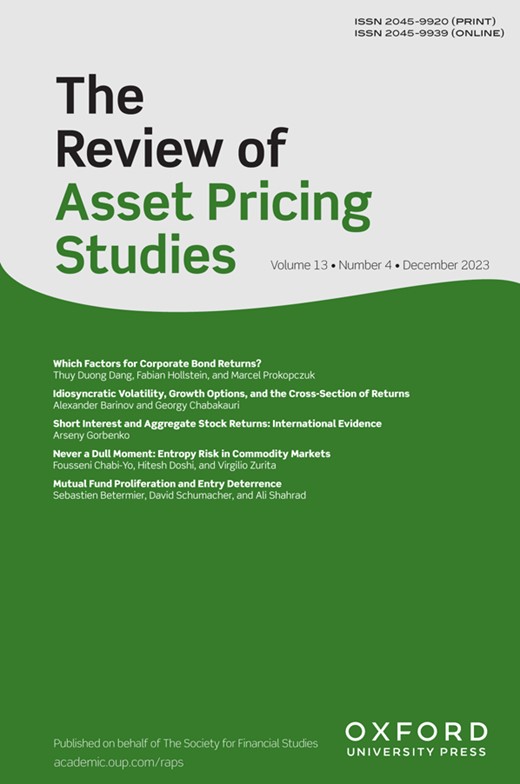党派之争会影响投资者的信仰吗?新冠肺炎大流行的证据
IF 1.5
Q2 BUSINESS, FINANCE
引用次数: 45
摘要
摘要我们使用政党识别语言,如“自由媒体”和“MAGA”,来识别投资者社交平台StockTwits上的共和党用户。使用差异设计,我们发现,在新冠肺炎大流行期间,党派共和党人对股票的信念相对不受影响,而其他用户则变得更加悲观。在横截面测试中,我们发现共和党人对新冠肺炎危机期间遭受最大损失的股票相对更乐观,但对中国股票更悲观。最后,在StockTwits上党派分歧最大的股票在更广泛的市场上有更多的交易,这解释了疫情期间股票成交量增加28%的原因。本文章由计算机程序翻译,如有差异,请以英文原文为准。
Does Partisanship Shape Investor Beliefs? Evidence from the COVID-19 Pandemic
Abstract We use party-identifying language—like “liberal media” and “MAGA”—to identify Republican users on the investor social platform StockTwits. Using a difference-in-difference design, we find that partisan Republicans remain relatively unfazed in their beliefs about equities during the COVID-19 pandemic, while other users become considerably more pessimistic. In cross-sectional tests, we find Republicans become relatively more optimistic about stocks that suffered the most during the COVID-19 crisis, but more pessimistic about Chinese stocks. Finally, stocks with the greatest partisan disagreement on StockTwits have significantly more trading in the broader market, explaining 28% of the increase in stock turnover during the pandemic.
求助全文
通过发布文献求助,成功后即可免费获取论文全文。
去求助
来源期刊

Review of Asset Pricing Studies
BUSINESS, FINANCE-
CiteScore
19.80
自引率
0.80%
发文量
17
期刊介绍:
The Review of Asset Pricing Studies (RAPS) is a journal that aims to publish high-quality research in asset pricing. It evaluates papers based on their original contribution to the understanding of asset pricing. The topics covered in RAPS include theoretical and empirical models of asset prices and returns, empirical methodology, macro-finance, financial institutions and asset prices, information and liquidity in asset markets, behavioral investment studies, asset market structure and microstructure, risk analysis, hedge funds, mutual funds, alternative investments, and other related topics.
Manuscripts submitted to RAPS must be exclusive to the journal and should not have been previously published. Starting in 2020, RAPS will publish three issues per year, owing to an increasing number of high-quality submissions. The journal is indexed in EconLit, Emerging Sources Citation IndexTM, RePEc (Research Papers in Economics), and Scopus.
 求助内容:
求助内容: 应助结果提醒方式:
应助结果提醒方式:


